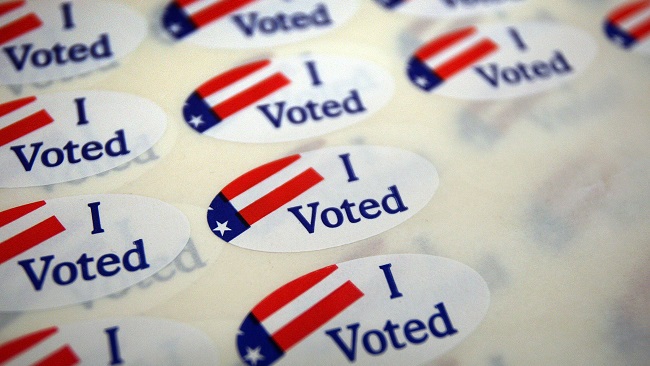
Following a late November Twitter rant in which Donald Trump falsely claimed he actually won the popular vote due to the “millions of people who voted illegally” for Hillary Clinton, the president-elect maintained the demonstrably false assertion at successive media and rally appearances. His assertion eventually garnered so much airtime that, despite all the fact-checking to the contrary, a recent poll indicated a majority of Republicans believed Trump’s claim — thereby proving the Washington Post‘s claim that American voters “choose facts to be consistent with [their] prior beliefs.”
Unfortunately for Trump (along with the 52 percent of polled Republicans who believe him and others who throw around baseless accusations of voter fraud, like in North Carolina’s gubernatorial election), a New York Times report on Sunday proves otherwise. The paper of record polled Democratic, Republican and Independent election officials in all 50 states and the District of Columbia, and while Kansas didn’t respond, everyone else did — and they all reported the same assessment: no “indications of widespread fraud” anywhere in the country.
Between D.C. and the 49 states who responded to the NYT‘s inquiries, the former and 26 states found “no credible allegations of fraudulent voting.” Officials representing eight other states reported knowing of at least one allegation in their purview, but nothing more beyond that. Others, like Tennessee, reported larger numbers of known cases (40 out of 4.3 million primary and general election votes). Georgia also indicated they had opened at least 25 inquiries into “suspicious voting or election-related activity,” though compared to the state’s counted vote total of 4.1 million, the ratio between credible and allegedly fraudulent ballots cast in negligible.
Most of the cases opened will likely result in findings disproving Trump’s allegations, thereby proving the argument of most experts that voter fraud “is a minuscule problem, but a potent political weapon.” Or as University of California, Berkeley Institute of Governmental Studies resident scholar Thomas E. Mann put it, “The old notion that somehow there are all these impostors out there, people not eligible to vote that are voting [is] a lie.”
(Via New York Times)
